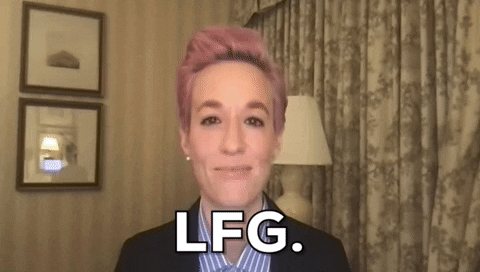Will New York permanently cap delivery platform commission fees?
San Francisco was the first on June 22—will New York City follow suit?
San Francisco made big waves last month when its Board of Supervisors voted unanimously to pass a permanent 15% fee cap, thereby limiting the amount that delivery platforms can charge restaurants. In a give-and-take approach, the legislation does not limit delivery platforms from charging restaurants additional fees for “marketing” and “additional services”—which gives way to DoorDash’s partnership plans.
The commission limits are not new, as many large cities—including New York, Philadelphia, Washington D.C., and Portland—enacted laws limiting commission fees, citing the economic devastation brought on by the pandemic. However, these caps were limited in scope by the duration of the pandemic (and in NYC’s case, the duration of the pandemic plus 90 days after being able to resume 100% indoor dining). And with states lifting restrictions, there is a tremendous level of anxiety from businesses about what it means going forward. While delivery platforms saw record growth in 2020, restaurants and bars across the country have been left in the lurch—and holding onto massive debt—particularly with the Restaurant Revitalization Fund fully depleted. Thus, it becomes a no brainer, from my perspective, that cities need to review their local ordinances before they expire, and greatly affect vulnerable and recovering businesses.
Permanent fee caps in New York
Introduced and heard by the Committee on Small Business just before the long weekend, NYC Council Members Francisco Moya and Mark Gjonaj shared Int 2359-2021, which seeks to lift the disaster restriction on Local Law 2020/088. In addition to this amendment, three others were proposed and reviewed on July 1st by the Committee:
Int 2333: as it pertains to the prohibition of delivery services arranging and listing food service establishments without their consent
Int 2335: as it pertains to requiring transparency in the telephone numbers for food establishments listed by delivery services
Int 2356: as it pertains to the prohibition of delivery services charging food establishment businesses for calls that do not result in a transaction
With regards to Int 2359-2021, Council Members Moya and Gjonaj make few changes to the original Local Law. The key differences are as follows:
Statements regarding the Local Law only being in effect during declared emergencies are omitted
Addition of the word “transaction” as it relates to credit card, so that it no longer just reads “credit card fee”, but rather, “credit card transaction fee”. In including the word “transaction”, delivery platforms are no longer able to massage the definition on what constitutes as such a fee into something more
Keep in mind that 2(b) states that any additional service, apart from the delivery fee, cannot exceed 5% (for a total maximum charge of 20% to restaurants), but credit card transaction fees were not included in that 5%. Thus, having a loosely phrased “credit card fee” posed as a possible loophole that delivery platforms could exploit should they wish to
To bolster 2(b), a definition of credit cards has been added as well
Should this amendment pass and signed into law, it would take immediate effect. At the moment, the amendment’s status is noted as “Laid in Committee”. This term means that floor action action will be postponed to the next legislative day. In other words, the vote has not yet taken place, but we’ve already had at least one hearing on the matter. Unfortunately, though, it can take some time before we see a vote. Take this example, as mentioned by City Limits, where Local Law 2019/092 was heard in January 2019, but not voted upon until four months later in April.
With the state of emergency no longer in effect as of June 24 in New York, the city’s fee caps are slated to expire on September 22nd. In other words, the clock is ticking. Restaurants cannot afford to wait much longer and risk being subjected to unreasonable commission fees if delivery platforms are not willing to work together with small businesses as equitable partners. City Council needs to intervene now and take the preventative action and protect our dining establishments by moving on this package as quickly as possible.
Edit 1: I originally tied the lifting of restrictions (June 15) to the end of state of emergency; however, Governor Cuomo officially lifted the state of emergency on June 24. I’ve updated the text as needed.
Edit 2: Council Member Gjonaj’s Chief of Staff Reginald Johnson noted that the expiration clause was meant to be written as an “and/or” trigger, as opposed to my parsing of AND, which means that 15% delivery fee commission will lift on August 17. I’ve included a copy of Local Law 2020/088’s expiration clause below with my emphasis in bold, and am letting Edit 1 stand for previous reference.
The requirements of this section apply only during the period in which a state disaster emergency has been declared by the governor of the state of New York or a state of emergency has been declared by the mayor, such declaration is in effect in the city, and all food service establishments in the city are prohibited from operating at the maximum indoor occupancy and for a period of 90 days thereafter.
Further reading
Politico: “‘Rampant Issues’: Black Farmers are Still Left out at USDA”
Grub Street: “Porcelain Is a New Destination for Vibrant, Energetic Cooking”
Business Insider: “Chipotle Limits How Much Customers Can Tip Workers Delivering Online Orders. The Company Says it's to Avoid 'Human Error' and 'Fraud.’”
Restaurant Manifesto: “The Food Media Needs to do Better”





